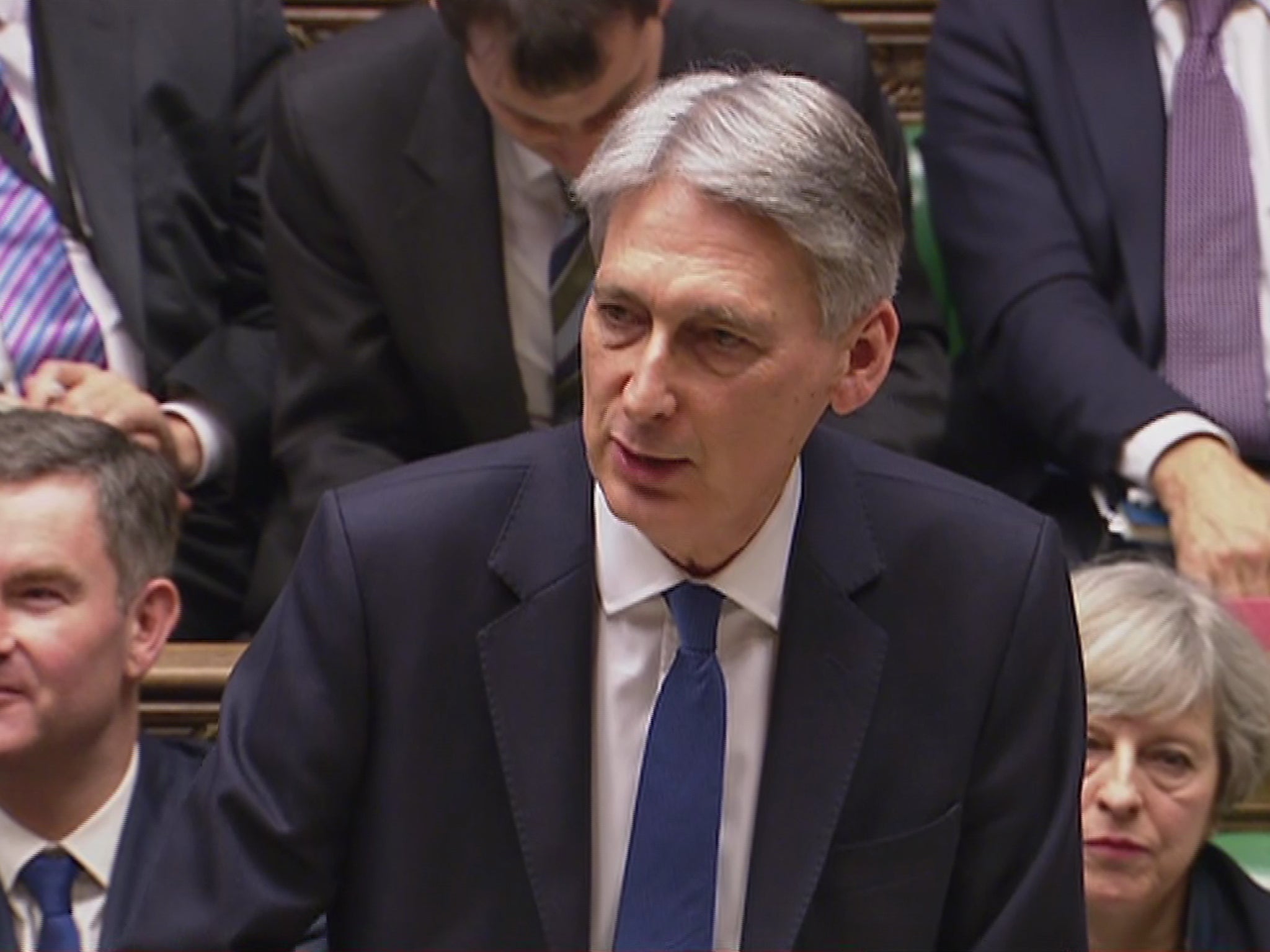Philip Hammond's first Budget failed to face up to the one issue on all our minds – Brexit
Instead of delivering some expensive tax cuts for the better-off, the Chancellor should have made sure he had even more ‘gas in the tank’ to deal with the turbulence Brexit will inevitably bring

For once, Jeremy Corbyn got it right. The Budget the Chancellor delivered today was, as the Leader of the Opposition said, “utterly complacent” – though perhaps not always in the way that Mr Corbyn meant.
Philip Hammond did not quite live up even to his own billing. Although the main event will now be in the autumn, as part of Mr Hammond’s careful strategy to keep his head down and limit his public outings in the coming tumultuous years, he could and should have done more now both to bolster the economy for the storms ahead and to deliver urgent funding to vital public services that are visibly and audibly facing collapse.
The most urgent of these is the crisis in social care, with its baleful consequences on the NHS as elderly patients continue to occupy much-needed bed space as they await discharge into residential care or support. As was widely reported in the media before the Budget – and Budget secrecy and the prerogatives of the House of Commons secrecy seem to have been abolished altogether – there will be a few billion pounds in extra resources for hard-pressed local authorities to cope with the crisis. There will be a little extra to support GP triage units in A&E, also much-needed. And that was pretty much that.
There are plenty of shroud wavers and all too many interest groups happy to exaggerate the problems in the NHS for their own ends (on both ends of political spectrum), but the scale of hospital closures and changes in local care were not even acknowledged by the Chancellor. Nor was there much sign that the next Budget in the autumn will deliver much more.

This was a dull Budget for traumatic times. Mr Hammond and his team at the Treasury realise better than most the effects Brexit will have, itself arriving against a background of faltering recovery from the economic downturn. The economy may be performing better than some expected – but that is not saying much. Borrowing and a balanced budget, which his predecessor once declared would arrive by 2015, has been postponed once again until the early years of the next decade, with all the uncertainties that such a long horizon carries with it.
The Treasury rightly fears that the day may come when Britain, dumped outside the EU, will find it impossible to borrow on international markets, so dismal will its post-Brexit prospects be. Mr Hammond was right to emphasise how indebted the UK is, and how much he will continue to have to borrow year after year, though it was too much to expect him to admit that the punk austerity pursued by George Osborne for most of the past decade is responsible for the nation’s present predicament.
Brexit, especially in its “hard” variety, will do nothing to boost growth or investment, and much to dispel confidence. Yes, there will be more effort and funding for infrastructure, for technical training and for other measures to rebalance regional economies and address Britain's productivity problem. But the scale of the economic change posed by Brexit has not been faced up to by this Government.
Instead of delivering some expensive tax cuts for the better-off and for companies, the Chancellor should have made sure he had even more “gas in the tank”, as he put it earlier in the week, to deal with the turbulence Brexit will inevitably bring.
On the big picture, then, Mr Hammond was found wanting. On the smaller items on the agenda he was better.
Bringing the treatment of self-employment into line with employment has some merit as a point of long-overdue clarification in the streamlining of the legal and fiscal treatment of new types of work. The backing for women’s causes and the celebration of the centenary of votes for women were also especially apt, given that the Budget was delivered on International Women’s Day. So-called T-levels will prove a much more productive investment than the return to selection in free schools heralded by the Government. A boost to the National Living Wage will also help those who are “just about managing”.
However, none of these, and no other measures envisaged by the Government, will come near to protecting the economy from the loss of easy access to its largest trading partner. We’d love to know how that looks on the Chancellor’s celebrated spreadsheets.
Join our commenting forum
Join thought-provoking conversations, follow other Independent readers and see their replies
Comments
Bookmark popover
Removed from bookmarks